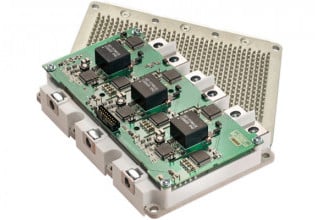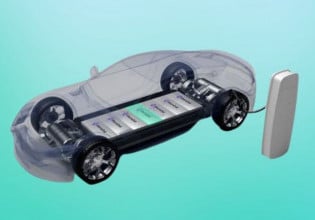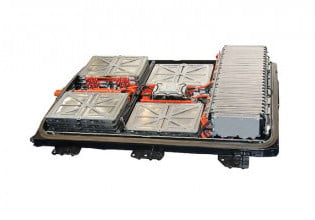U.S. DOE Announces $55 Million in Funding for Electric Aviation Programs
The U.S. Department of Energy's (DOE's) Advanced Research Projects Agency-Energy (ARPA-E) announced up to $55 million in funding for two programs to support the development of low-cost electric aviation engine technology and powertrain systems. Research on Aviation-class Synergistically Cooled Electric-motors with iNtegrated Drives (ASCEND) and Range Extenders for Electric Aviation with Low Carbon and High Efficiency (REEACH) programs seek to develop commercial-class electric aviation energy technology solutions with the goal of mitigating the emissions caused by passenger aircraft.
"Every American should have reliable, affordable, and efficient transportation, and the electrification of aviation systems has the potential to transform the way aircraft consume and use energy," said U.S. Secretary of Energy Dan Brouillette. "These programs will focus on innovative research and development for flight systems that increase the overall efficiency of aircraft and have the potential to reduce aircraft fuel consumption and emissions"
Each year, air travel accounts for nearly 175 million metric tons of CO2 emissions in the U.S., or about 2.6% of domestic GHG emissions. These programs represent ARPA-E's first focused efforts on the development of more energy efficient, electric motor and powertrain systems for commercial aircraft, and awardees will be subject to a rigorous performance metrics review over the course of their funding cycles.
ASCEND projects will support the development of lightweight and ultra-efficient integrated electric motors, drives and thermal management systems to facilitate net-zero carbon emissions. The REEACH program will develop a system for the conversion of chemical energy contained in energy dense Carbon Neutral Liquid Fuels to electric power for aircraft propulsion. Both programs will develop technology for use in narrow-body, passenger aircraft.
Cost of research will be funded with $55 million available through both of these electric aviation programs, up to $35 million will be available for through ASCEND and up to $20 million will be available in the REEACH program. A portion of funding in both programs will be made specifically available for qualifying small business applicants under ARPA-E's Small Business Innovation Research (SBIR) program.
The ASCEND Program
The ASCEND program supports the development of innovative lightweight and ultra-efficient electric motors, drives, and associated thermal management systems (collectively referred to as the all-electric powertrain) that will help enable net-zero carbon emissions in single-aisle, 150-200 passenger commercial aircraft, such as the Boeing 737. The ASCEND program sets a benchmark of the fully integrated all-electric powertrain system at a power density of ≥12kW/kg with an efficiency at ≥93%.
Currently, these targets, among others, are beyond the capability of state-of-the-art technologies and will require creative thinking and innovation in the electric motor and power electronics space. The ASCEND performers will work in two phases, delivering the:
- Conceptual designs and computer simulations of the motor, its drive, and their integration, as well as subsystem/component level demonstrations for the proposed key enabling technologies to support the performance projections. Phase I will be 18 months long.
- Development, fabrication, and testing of an integrated sub-scale all- electric powertrain (≥250kW), including its thermal management system. (Successful projects may proceed to Phase II subject to budgetary restrictions.)
The REEACH Program
The REEACH program objective is to develop a disruptive system to convert the chemical energy contained in energy-dense carbon neutral liquid fuels (CNLFs) into electric power for aircraft propulsion via electric powertrains and other key systems. With a developmental prototype as the ultimate goal, REEACH performers will work to create innovative, cost-effective and high-performance energy storage and power generation (ESPG) sub-systems.
The developed ESPG system must deliver adequate electric power to propel a fully electric, narrow-body aircraft through all the various flight phases (i.e., taxi, take-off, climb, cruise, and descent) and store sufficient energy to power the entire aircraft during a long-range mission with adequate safety reserves. The developed ESPG should be efficient and light enough to enable operations commensurate with existing commercial single-aisle aircraft missions.
In the design of their ESPG systems, applicants are given latitude to select the CNLF, system architecture, and individual component technologies. REEACH will develop the critical enabling components and sub-system architectures for high-efficiency conversion of CNLF energy into electricity with sufficient power density for aircraft propulsion.






